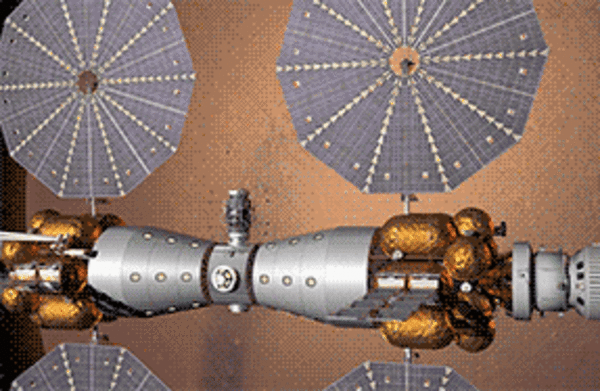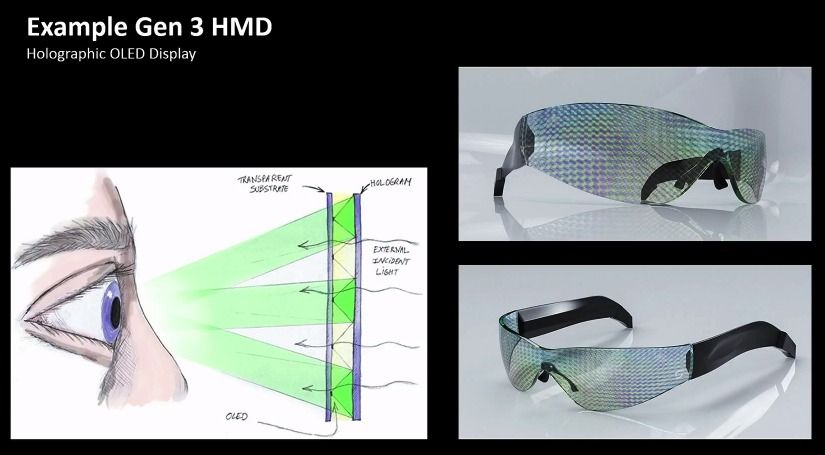Page 11320
Jul 20, 2016
A man named Zoltan is running for president, too —and he wants our bodies
Posted by Zoltan Istvan in categories: geopolitics, robotics/AI, transhumanism
I was at the Republican National Convention in Cleveland yesterday representing transhumanism with Transhumanist Party supporters. So were many protesters. This is a humurous write up in one of Florida’s largest papers by a well known comedy writer.
Dave Barry is in Cleveland for the Republican National Convention, and he has met a presidential candidate from the Transhumanist Party named Zoltan Istvan, who wants to put robotic bits in our bodies.
Jul 20, 2016
Google has found a business model for its most advanced artificial intelligence
Posted by Andreas Matt in categories: business, robotics/AI
Jul 20, 2016
How Lockheed Martin Plans To Set Up A Base Camp In Mars’ Orbit
Posted by Andreas Matt in category: space travel
Jul 20, 2016
Former journalist who embedded with DARPA delivers ‘Radical Evolution’ seminar
Posted by Klaus Baldauf in category: evolution
ROCK ISLAND ARSENAL, Ill. — Former Washington Post reporter, Joel Garreau, Lincoln professor of Law, Culture, and Values at Arizona State University spoke at Heritage Hall on his book “Radical Evolution,” here, July 14.
Garreau, whose seminar provoked thoughts on the future of Army sustainment, logistics and warfighter readiness, was invited to speak as part of ASC Commanding General Maj. Gen. Kevin O’ Connell’s Leadership Professional Development seminar series.
Garrea’s main argument is that for the first time in human history, we now have the technological ability to take control of our evolution.
Jul 20, 2016
Leap Motion Predicts Amazing 3rd Generation Holographic OLED Virtual Reality Headsets
Posted by Klaus Baldauf in categories: augmented reality, virtual reality
While the virtual reality headsets like the HTC Vive and Oculus Rift are quite impressive already, there is no doubt that the technology will be developing rapidly, becoming more immersive, lighter, and less intrusive. Leap Motion, a company known for their motion tracking software and cameras has close ties with many of the larger VR manufacturers, and this last week the company’s CTO David Holz spoke a bit about his vision for future VR/AR headsets, based on some of the discussions he’s had with various big-name manufacturers. While Leap Motion likely won’t be producing hardware for these future headsets, it is very possible that their software could play an integral part in future generations VR and AR products.
Holz discussed some of the technology that may be found in third generation headsets of the future, and while he didn’t say when such technology would be available, my guess is perhaps 5–7 years. These third generation headsets will likely be transparent, look a lot like a pair of sunglasses, be extremely light weight and rely on Holographic OLED displays which will be able to switch between both AR(transparent) and VR(opaque) capabilities.
“They’re slightly funny-colored,” he said as he described these future headsets. “But they’re pretty reasonable, something that I might wear all day, all the time. And that’s something that, to me personally, is the most exciting. That’s getting into the age of AR… I’m seeing lots of things ahead of everybody. Behind the scenes, these things are starting to appear more and more.”
Jul 20, 2016
Elon Musk planning radical TRIPLE rocket landings that could take man to Mars
Posted by Andreas Matt in categories: Elon Musk, space travel

Not content with landing its fifth rocket, Elon Musk has unveiled plans the land three rockets at once.
SpaceX has applied for permission to build new landing pads at the Cape Canaveral HQ it leases from NASA.
Continue reading “Elon Musk planning radical TRIPLE rocket landings that could take man to Mars” »
Jul 20, 2016
In Blockchain We Trust
Posted by Alexandra Whittington in categories: bitcoin, education
I was a guest on the Robot Overlordz podcast again recently, and was asked about my post on Medium for KnowledgeWorks called “Preparing for Hybrid Schools and Jobs.” The conversation with Mike and Matt took some interesting turns, as always, and they g ot me thinking about some really important questions when it comes to blockchain and society, namely: assuming blockchain lives up to it’s reputation as a ‘truth machine,’ as I refer to it in my post, or a ‘revolution,’ as the Tapscotts say, why is there now a need for a revolutionary technology to enhance trust?
ot me thinking about some really important questions when it comes to blockchain and society, namely: assuming blockchain lives up to it’s reputation as a ‘truth machine,’ as I refer to it in my post, or a ‘revolution,’ as the Tapscotts say, why is there now a need for a revolutionary technology to enhance trust?
Although blockchain has captured the attention of the financial, management consulting and consumer goods industries, it hasn’t quite taken hold in education yet. KnowledgeWorks has published a fantastic report on the possibilities. I suggest in my post that the rise of hybrid jobs will generate support for hybrid schooling, and blockchain may be the technology that is best suited to track and communicate qualifications. The World Economic Forum said it best: “Farewell Job Title, Hello Skill Set.” If we are to be evaluated on our skills and experience, we must have some reliable way of guarding and transmitting that information.
But why is it that we need to enhance trust among students and teachers, employees and employers? I think that the facts that college students (some who didn’t even graduate) owe massive student loans, though worker’s wages have gone stagnant, play into this tension. How can students trust schools to provide the education they need, considering the high cost and the gamble that it may never really be recouped?
We are beginning to see slight signals that things are changing, at least a little, on the remuneration side, and it’s possible that a truth machine could help restore trust to hierarchical relationships (student/university and employee/employer) that are extremely out of balance. But what is at risk in assuming a technology can reverse human corruption?
Tag: blockchain
Jul 20, 2016
AI on a chip for voice, image recognition
Posted by Klaus Baldauf in categories: computing, health, internet, neuroscience, robotics/AI, wearables
Horizon Robotics, led by Yu Kai, Baidu’s former deep learning head, is developing AI chips and software to mimic how the human brain solves abstract tasks, such as voice and image recognition. The company believes that this will provide more consistent and reliable services than cloud based systems.
The goal is to enable fast and intelligent responses to user commands, with out an internet connection, to control appliances, cars, and other objects. Health applications are a logical next step, although not yet discussed.
Wearable Tech + Digital Health San Francisco – April 5, 2016 @ the Mission Bay Conference Center.
Jul 20, 2016
How Virgin Galactic’s new spaceship honors Stephen Hawking — By Michael D’Estries | Mother Nature Network
Posted by Odette Bohr Dienel in categories: space, space travel
“Virgin Spaceship Unity, set to begin test flights next month, includes a very special nod to the theoretical physicist.”
















